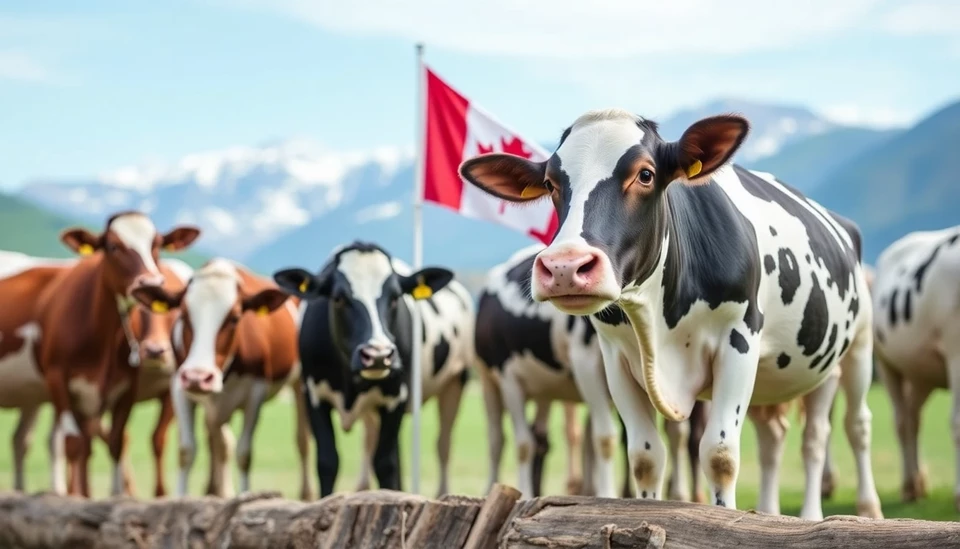
In a significant escalation of international trade disputes, Canada is currently accused by rival dairy exporters of engaging in unfair trade practices, specifically the dumping of milk products onto the global market. This allegation comes as Canada’s significant subsidies to its dairy farmers appear to be undermining competitors, prompting calls for stricter regulation and balanced competition in the dairy sector.
The accusation is rooted in the observation that Canadian dairy exports have surged at prices that critics argue are far below market value. Countries such as Australia and New Zealand have raised concerns that Canada's pricing tactics not only threaten their dairy industries but also disrupt the overall balance of the global dairy market.
This situation has become particularly contentious, with government officials from these rival nations warning that such dumping practices could lead to a trade war if not addressed. The concept of dumping refers to the act of exporting goods at a price lower than that in the domestic market, a practice deemed unfair and often subject to anti-dumping laws in various countries. As a result, there is a growing push for trade authorities to investigate these claims thoroughly.
In response, Canadian officials have defended the practices of their dairy sector, emphasizing the importance of supporting local farmers through subsidies, which they argue enable them to compete effectively in a challenging global marketplace. They insist that Canada's pricing aligns with regulations and does not contravene any existing trade agreements. Moreover, representatives from the Canadian dairy industry assert that their exports play a crucial role in meeting global dairy demands, particularly in regions where dairy consumption is on the rise.
This development comes amid broader discussions about agricultural trade policies and how they affect international relations. As countries work to navigate the complex landscape of trade agreements, issues like these can lead to long-lasting impacts on diplomatic relations and economic standings. The focus now rests on how the global trading body will respond to these allegations and whether they will initiate an inquiry into Canada’s dairy export practices.
The stakes are significant for all parties involved. Should investigations confirm the allegations, there could be a serious backlash against the Canadian dairy sector, with potential tariffs and penalties imposed as a corrective measure. Conversely, if Canada can substantiate its practices as legitimate under international trade laws, it may strengthen its position in future negotiations and bolster its role in the global dairy market.
As tensions rise, exporters, regulators, and policymakers worldwide will be examining this situation closely, and the implications may reverberate across various industries beyond dairy, influencing trade dynamics on a broader scale.
In conclusion, this controversy illustrates the fragile nature of international trade relationships and the complexities involved in agricultural commodities, especially in industries heavily influenced by domestic policy and international demand.
#Canada #DairyExport #TradeDispute #GlobalTrade #DairyIndustry #FairTrade #AgriculturalPolicy #TradeRegulations #DumpingAllegations
Author: Victoria Adams




